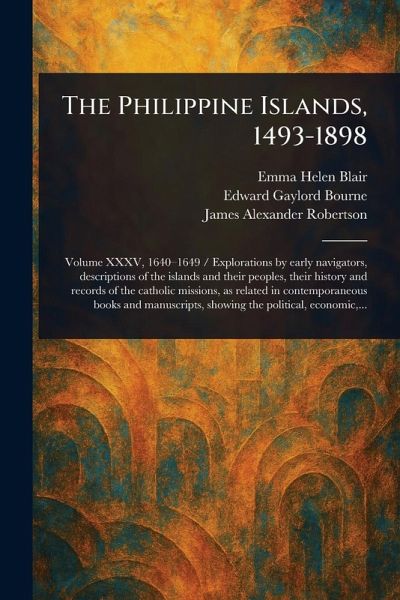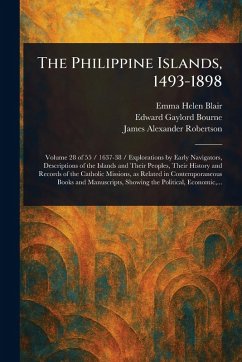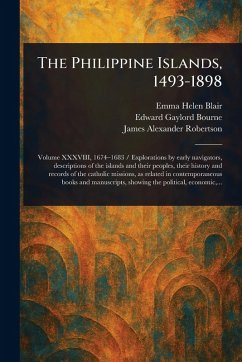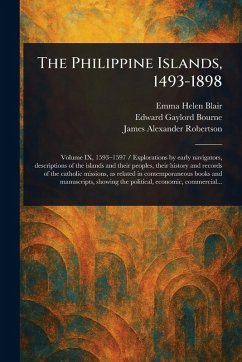
The Philippine Islands, 1493-1898
Versandkostenfrei!
Versandfertig in über 4 Wochen
19,99 €
inkl. MwSt.

PAYBACK Punkte
10 °P sammeln!
Venture into the heart of the 17th-century Philippines with "The Philippine Islands, 1493-1898, Volume XXXV, 1640-1649," a meticulously compiled historical record offering unparalleled insights into this Spanish colony. This volume delves into the explorations, descriptions, and rich history of the Philippine Islands and their people during a transformative period. Explore firsthand accounts of early navigators and the establishment of Catholic missions. Discover the political, economic, commercial, and religious conditions that shaped the islands. Learn about the Demarcation line of Alexander...
Venture into the heart of the 17th-century Philippines with "The Philippine Islands, 1493-1898, Volume XXXV, 1640-1649," a meticulously compiled historical record offering unparalleled insights into this Spanish colony. This volume delves into the explorations, descriptions, and rich history of the Philippine Islands and their people during a transformative period. Explore firsthand accounts of early navigators and the establishment of Catholic missions. Discover the political, economic, commercial, and religious conditions that shaped the islands. Learn about the Demarcation line of Alexander VI and its impact on the region. Sourced from contemporaneous books and manuscripts, this collection provides a vital window into the complex interactions between European nations and the Philippine Islands. Perfect for historians, researchers, and anyone fascinated by Southeast Asian history, Latin American history, and the age of exploration. This work has been selected by scholars as being culturally important, and is part of the knowledge base of civilization as we know it. This work is in the public domain in the United States of America, and possibly other nations. Within the United States, you may freely copy and distribute this work, as no entity (individual or corporate) has a copyright on the body of the work. Scholars believe, and we concur, that this work is important enough to be preserved, reproduced, and made generally available to the public. We appreciate your support of the preservation process, and thank you for being an important part of keeping this knowledge alive and relevant.














